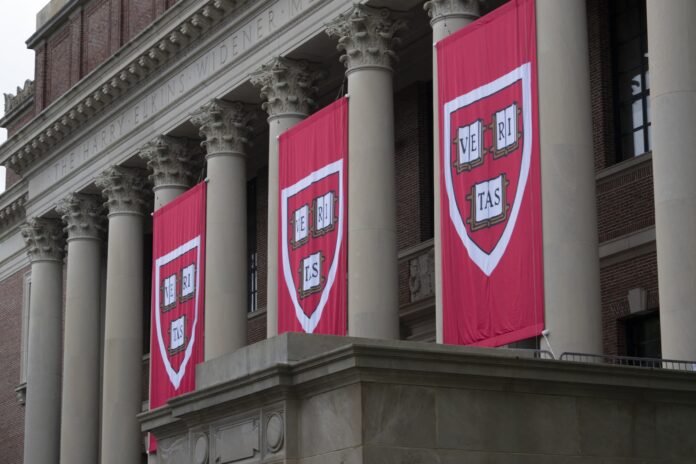The battle between the White House and Harvard University over a $2.2 billion federal funding freeze and demands to ban international students is no isolated attack. It’s part of a broader war on liberal higher education—and a harbinger of a wider global struggle.
A federal court ruling may have temporarily blocked the student ban, but the message is clear: these attacks are ideological, deliberate, and dangerous.
The 24 universities backing Harvard’s lawsuit know this is bigger than campus politics. Undermining academia weakens one of the last independent institutions shaping AI’s impact on society.
By weakening the institutions that embed human knowledge and ethical reasoning into AI, we risk creating a vacuum where technological power advances without meaningful checks, shaped by those with the fastest resources, not necessarily the best intentions.
The language used in discussions about ethical AI—terms like “procedural justice,” “informed consent,” and “structural bias”—originates not from engineering labs, but from the humanities and social sciences. In the 1970s, philosopher Tom Beauchamp helped author the Belmont Report, the basis for modern medical ethics. Legal scholar Alan Westin’s work at Columbia shaped the 1974 Federal Privacy Act and the very notion that individuals should control their own data.
This intellectual infrastructure now underpins the world’s most important AI governance frameworks. Liberal arts scholars helped shape the EU’s Trustworthy AI initiative and the OECD’s 2019 AI Principles—global standards for rule of law, transparency, and accountability. U.S. universities have briefed lawmakers, scored AI companies on ethics, and championed democratized access to datasets through the bipartisan CREATE AI Act.
But American universities face an onslaught. Since his inauguration, Trump has banned international students, slashed humanities and human rights programs, and frozen more than $5 billion in federal funding to leading universities like Harvard.
These policies are driving us into a future shaped by those who move fastest and break the most.
Left to their own devices, private AI companies give lip service to ethical safeguards, but tend not to implement them. And several, like Google, Meta, and Amazon, are covertly lobbying against government regulation.

Rick Friedman / AFP/Getty Images
This is already creating real-world harm. Facial recognition software routinely discriminates against women and people of color. Denmark’s AI-powered welfare system discriminates against the most vulnerable. In Florida, a 14-year-old boy died by suicide after bonding with a chatbot that reportedly included sexual content.
The risks compound when AI intersects with disinformation, militarization, or ideological extremism. Around the world, state and non-state actors are exploring how AI can be harnessed for influence and control, sometimes beyond public scrutiny. The Muslim World League (MWL) has also warned that groups like ISIS are using AI to recruit a new generation of terrorists. Just last month, the FBI warned of scammers using AI-generated voice clones to impersonate senior U.S. officials.
What’s needed is a broader, more inclusive AI ecosystem—one that fuses technical knowledge with ethical reasoning, diverse cultural voices, and global cooperation.
Such models already exist. The Vatican’s Rome Call for AI Ethics unites tech leaders and faith groups around shared values. In Latin America and Africa, grassroots coalitions like the Mozilla Foundation have helped embed community voices into national AI strategies.
For instance, MWL Secretary-General Mohammad Al-Issa recently signed a landmark long-term memorandum of understanding with the president of Duke University, aimed at strengthening interfaith academic cooperation around shared global challenges. During the visit, Al-Issa also delivered a keynote speech on education, warning of the risks posed by extremists exploiting AI. Drawing on his work confronting digital radicalization by groups like ISIS, he has emerged as one of the few global religious figures urging faith leaders to be directly involved in shaping the ethical development of AI.
The United States has long been a global AI leader because it draws on diverse intellectual and cultural resources. But that edge is fading. China has tripled its universities since 1998 and poured billions into state-led AI research. The EU‘s newly passed AI Act is already reshaping the global regulatory landscape.
The world needs not just engineers, but ethicists; not just coders, but critics. The tech industry may have the tools to build AI, but it is academia that holds the moral compass to guide it.
If America continues undermining its universities, it won’t just lose the tech race. It will forfeit its ability to lead the future of AI.
Professor Yu Xiong is Associate Vice President at the University of Surrey and founder of the Surrey Academy for Blockchain and Metaverse Applications. He chaired the UK All-Party Parliamentary Group on Metaverse and Web 3.0 advisory board.
The views expressed in this article are the writer’s own.






